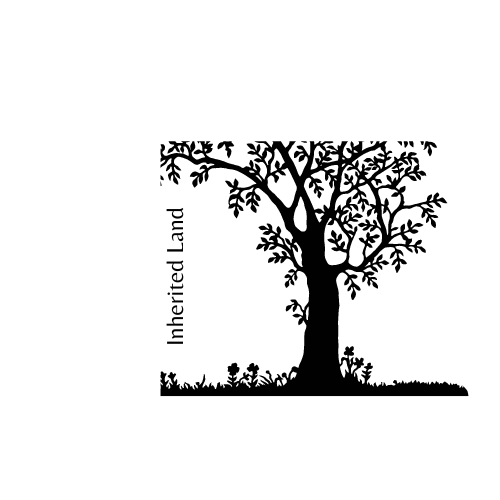Selling An Inherited Property
“Inherited A House With No Mortgage“?

Selling An Inherited Property
You just inherited a house from a deceased relative, and you’re searching the web seeking advice or guidance for your newly acquired assets. A bittersweet moment. On one hand, you have received an estate inheritance; on the other hand, someone you knew has just passed away.
In this article, we’ve detailed the most prominent seller questions we receive when selling an inherited property! We will also cover what occurs when someone has inherited a house with no mortgage and the process of inheriting a house with a mortgage.
Property ownership can be a valuable asset, but it also comes with a lot of responsibilities, especially concerning a real estate transaction. Whether the house is free and clear of a mortgage or not, there are a couple of things to take into consideration when it comes to selling an inherited property. Let’s answer all possible questions you may have.
Inherited A House with No Mortgage
If you’ve inherited a house with no mortgage balance, then you’re in luck! This means you don’t have to worry about making monthly payments and can move forward with selling the property, unlike inheriting a house with a mortgage. Before listing the house, it’s a good idea to have a home inspection and update the property. This can help you get the highest marketable price wanted for the condition of the home.
If the property is Free and Clear when you sell the home, you will receive all the profits without having to share with the bank, and that’s the advantage if you inherited a house with no mortgage.
This also means that if there is anything to improve or if repairs are needed, there is equity within the house. With a decent amount of equity, you shouldn’t worry about providing your own personal money into the property. This process might not be the case if you did have a mortgage and the amount owned ate the majority of all the equity in the property.
If you inherited a house with no mortgage and sold it with multiple beneficiaries or siblings, they also have claims to the profit split. This means all the profit will be distributed equally or, in some cases, in different percentages depending on if there was a will in place.
Inheriting A House With A Mortgage
If you’re inheriting a house with a mortgage existing, you’ll need to assess your options. As a homeowner in this position, you could keep the inherited house and continue making monthly payments. Or sell the inherited house and use the benefits to pay off the mortgage. Before making a decision, make sure you have planned ahead; it’s important to look at the terms of the loan and calculate how much you are investing and decide it versus how much you’d make from selling it. Inheriting a house with a mortgage could require a lot of you, whether financially or time put into the home.
Inheriting a House with a Mortgage and what you should know about it.
Starting off with making payments on the home and keeping it. If you decided to keep the inheritance and have planned to keep it for years down the line. It would be best to update the property and hire workers for the repairs needed on the house to make it formal and rental ready. Although you are not obligated to make these repairs, it’s important to keep the property in the best shape possible to avoid future issues with the home. In most cases, if you keep the property and use it as a rental, it’s recommended to talk to a property manager. Or you can manage the property personally and conduct research to find competitive rent rates you can charge.
We’re barely scratching the surface of what’s needed to manage a rental property. A common response with inheritance properties is that the owner regrets their decision for the following reasons. The owner got stuck with a bad tenant; they have gone negative each month for cash flow and are now facing foreclosure. To avoid being a part of this example above, make sure you are willing to do adequate research and proper planning and be able to manage the stress as well. The upside of this option is you, the homeowner can expect to reap the benefits, and if you decide to pursue this route of investing, your rentals can help with funding other properties.
A word of advice as well when you inherit a property with a mortgage, call the bank asap and make sure the mortgage is assumable, meaning you can assume their position with the mortgage. If it’s not assumable, the bank at any moment can trigger a “Due on Sale Clause,” meaning since the owner’s name has changed, the banks can request all money owed on the property due within “X” days.
Interested in Selling A House With a Mortgage
Let’s assume the rightful heir is willing to sell their inherited house with a mortgage. Call the bank or check the mortgage statement and make sure there is enough equity within the home to sell. It’s common for people to have low equity within a home, and after all, closing costs come out of pocket for title fees and the agent’s commission. Also, another thing to make sure of is to check the mortgage statement and search for any pre-payoff penalties; these can be added fees, and all that equity can be drained quickly.
If the rightful heirs are worried that a 6% realtor commission and the possible addition of 2-3% title and closing fees plus repaying the mortgage will leave them with nothing in the bank in most cases. That’s where investors that specialize in cash home buying come in handy. An investment home company such as ourselves doesn’t charge fees and zero-realtor commissions, and we will pay for the majority, if not all, closing costs. Regardless if you are set on selling with a real estate agent, we would love to make you an offer.
Get My Cash Offer!
“If the property’s current appraised value is less than the mortgage balance, you will not profit from the transaction.”
Capital Gains on Inherited Property
When selling an inherited property, you may be subject to a tax called “Taxable Capital Gains“ liabilities. Generally, you won’t have to pay tax liabilities on the amount you inherited from the assets, but you may be responsible for taxes on the profits you make from selling it. It’s important to understand the terms, rules, and regulations enforced by the IRS in your state and consult an accountant or a legal tax professional to ensure you’re aware of any tax implications.
Is There a Time Limit on Selling an Inherited Property?
There is usually no time limit on selling an inherited property. However, it’s important for the beneficiary to remember that the longer they wait to make a decision regarding their inheritance, the more expenses may accrue. Be sure to weigh all your options before deciding when to put the house on the market, and know the difference when you sell it with a cash home-buying business.
When can you sell an Inherited Property?
A rightful heir can sell their inheritance once it’s officially transferred into their names and all potential ownership claims have been taken care of. However, if more than one person is named to receive a piece of that property, beneficiaries must agree on how to proceed with the property. In the ideal situation, all owners agreed to sell for cash as-is, and a good resource would be home cash home buyers.
Stop Foreclosure on Inherited Property
If your inheritance includes a house with a mortgage, and you are facing foreclosure. Don’t panic! There are valuable steps you can take to stop foreclosure proceedings. Communicate with a lender and let them know you’ve inherited the property. Then, you can work out a plan to pay off the mortgage or come to an agreement that allows you to keep the house. If you need additional help, we have a blog dedicated just to this situation. “How to stop a foreclosure”

Selling Inherited Land
If you’ve inherited land, you may wonder what the process is for selling it. The process is similar to selling a house, but a few additional factors must be considered. You’ll need to research the zoning laws in your area and make sure the land is marketable before it gets listed. You may also need to have an appraisal done or a survey of the land to make sure you properly mark the land’s boundaries.
I Inherited A House, What’s Next?
If your inheritance includes a house, the first step is to look at all your options. Consider whether you want to keep the house, rent it for an income, or sell it and use the proceeds for something else. Once you’ve decided, you’ll need to research the laws and regulations in your area and determine the best way to sell an inherited property.
Selling an inherited house, or is it best to keep it?
Selling an inherited property or keeping your inheritance is a difficult decision to make and will require extra attention from you. If you’re willing to make it your personal residence or investment, it will make sense, but if you live a thousand miles away, don’t want to move in. Or don’t like the idea of being a landlord and dealing with tenants paying the monthly rent late. Then selling it makes sense.
Stuck on making a decision? Try to look at selling vs. keeping the property from buyers‘ and sellers’ perspectives. A seller’s perspective is different than a buyer’s because sellers are looking to get rid of a property and profit with the most cash in hand. While a buyer is looking at investing in the property and keeping with the goal of the rental being profitable. If you inherited a house with no mortgage or inheriting a house with a mortgage, we are here for you. We buy properties in cash and typically can close in under 2 weeks; yes, that quick, you’d be freed of all your stress.
Several ways to avoid paying capital gains tax on your inherited property.
- Owner Financing the property to an investor
- Make it your primary residence
- Have it as a rental property for income
- Costly selling expenses and repairs can be deducted from the capital gains tax
Can you really avoid paying capital gain tax on your inherited property?
No, the IRS will want you to document those gains. But capital gains tax varies depending on how long you have the inherited property before selling it. According to the government IRS, “Holding it for less than a year, then it will be subject to a short-term capital gains rate.” It means it’s the same as your ordinary tax rate, but if you hold it for more than a year, it’s the opposite. It’ll be a long-term capital gain, and your tax rate may be 0%-20%, depending on your taxable income. Selling might be the best response when you need to start making decisions related to taxes that you are obligated to pay.

What’s your most profitable choice or decision for your inherited property?
Selling an inherited property is the most common, stress-free, and profitable choice. Regardless if you inherited a house with no mortgage or inheriting a house with a mortgage selling, it would be the best the easiest way to handle it. Assuming that you have already dealt with the probate process and other issues, completed and provided all necessary paperwork, and cleared the title of the property you inherited, it’s time to decide on selling it.
Pros of selling the inherited home.
- You’re freed from any responsibility for that property
- Of course, you can make a significant amount of money off the property sale
- You can use the proceeds to pay debts, tuition, buy another property, and for any other purposes
- You can avoid future issues that the inherited property may have. Freed from stress.
Renting out the property I inherited
Maybe you don’t have the idea yet of selling it, but these are what you have to take into consideration if you choose to have it rented:
- You must deal with tenants
- You’re the one responsible for the maintenance of the property and its utilities.
- You must record rental income for tax purposes
- You’re the one paying the tax liabilities related to the property
Am I getting a higher sale if I list it with a realtor?
If you’re already communicating with professional real estate agents to help you sell the home quickly or at a reasonable price. The problem is buyers are interested in formal, modernized properties, which means you must refurbish or update an inherited property. If its current condition isn’t updated, it might stay on market a little longer, or you will receive lower offers. Such a process isn’t only expensive when you calculate the fees; it might also take months to complete the sale.
Let’s assume you are set on using a realtor. Let’s do a little math to ensure you make the best choice. Take out your pens and paper, then prepare to calculate. You can use these as your basis.
Example: Let’s say your house is worth 300,000.
- Real Estate Agents Commission is 6% which is 3% for each agent.
- Title and Closing Costs are roughly 2-5%
- Capital Gains = 0-20% or more on profit after the sale
- You find a consumer at your asking price of 300,000
- The realtor’s service will take roughly: 300,000 X .06 = 18,000
Here are two examples of what the title company and closing costs will be: (300,000 X .02) = 6,000 or (300,000 X .05) = 15,000
Capital Gains are charged after all realtor fees and Title Fees:
- a.) (300,000-18,000-6,000) = 276,000 X 20%= 220,800 Ouch…
- b.) (300,000-18,000-15,000) = 267,000 X 20%= 213,600 Bigger Ouch…

Selling the Inherited property
As-is for Cash
If the beneficiary doesn’t have money, time, or energy to update, improve, and repair their inheritance, they are interested in selling fast for cash. Sellers who work with us don’t have to pay for any repairs or spend any money on closing costs. Of course, that sounds easier than having it listed with a real estate agent, right? Selling as-is is the most valuable decision a rightful heir can have rather than funding out of pocket for updates, closing costs, and agents.
Can an Inherited property be sold even before ownership officially changes hands during the Probate process?
It’s not possible. Unfortunately, the property needs to be maintained during this time and manage all payments such as utilities, mortgages, taxes, insurance, and general upkeep. If these are not taken care of, your home can fall into foreclosure or start the proceedings for a tax deed sale. Both are bad, and you risk losing all your home equity if the bank forecloses on the property.
However, there is a silver lining: you can start talking to an investor or business that specializes in buying homes in cash, such as ourselves, that can help with these payments and the upkeep of the property. Obviously, investors can’t do this for free, but once the property has completed probate, a deal can be structured to purchase the home. Or have first right to purchase the home with the discounts regarding expenses the investor made taking down the purchase price. The purpose of working with an investor is similar to an insurance policy that can secure and protect your family’s hard-earned equity because if you lose this property, the bank won’t pay you a dime.
How long does it take to sell an Inherited Property?
This depends on several factors, from the complexity of the deceased’s affairs to how attractive homes are to buyers. In a simple case, in a few weeks, possibly, probate can be granted. If the inherited property is in a desirable location, in good condition, and has no chain or issue, sellers can sell fairly quickly. Often though, it will take longer, around 6 months to years. Why wait when you can sell it with no hassle with the help of a home-buying business? It’ll provide you with the best value option and deal you could ever have, regardless if you inherited a house with no mortgage or inheriting a house with a mortgage.
Real Estate Agent time Vs. Cash Home buyer time
After completing probate, all property documents are checked off if you decide to sell your inherited property. You will need to either sell with the guidance of a real estate agent, try to sell the property yourself, or sell to a cash home buyer.
If you choose the path of obtaining guidance from a Real Estate agent, you’ll generally wait 1 to 3 months for the sale to complete. With the exclusion of how hot or cold the market is, how attractive the sales rates and the overall condition of the property. If time is of the essence, this route might not be the best choice. It will require a lot of time.
If you inherited a house with no mortgage or inheriting a house with a mortgage and you wanted to sell all by yourself, you run the risk of sitting on the market even longer because you can’t gain as much market exposure compared to a listing on the MLS. On the bright side, you, the seller, could save money on 6% realtor service commissions.
Lastly, instead of listing with a professional realtor or by yourself for a buyer that will purchase your home, we are the end buyer business; we will purchase the home as-is with zero realtor commissions and no fees.
The best part is we buy properties in cash and typically can close in under 2 weeks. Yeah… we essentially are the rainbow road when it comes to selling an inherited property. We always want this to be a stress-free situation for you. Shoot us a message, call, or email, and be as detailed as possible if you have any other concerns selling an inherited property!
Just call us today at 385-283-0991 or contact us now for more information
on how we can make you a fair cash offer on your inherited house today!
Need Additional Resources
Do you want more information like this? Feel free to check out our other blog topics and blog feeds. Click the button below to learn more!
Additional Property Types and Conditions Blogs
Need to know more about foreclosure and the process? Check out our related blogs.
- Selling a Co-Owned Property in Utah
- Sell a House with Title Problems in Utah
- Inherited a House with Siblings
- Make Repairs to Your Utah House Before Selling It
- How Can I Keep My House on a Divorce
- I’m Relocating and Need to Sell My House
- List Your Property or Sell It Directly
- Selling An Inherited Property
- Capital gains on inherited property
